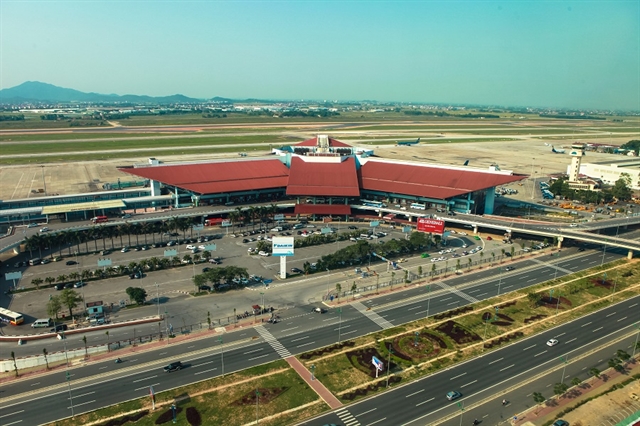The Ministry of Transport has proposed the Government buy back foreign-owned shares in the Airport Corporation of Vietnam to ensure airports are operated properly.

The Ministry of Transport (MoT) has proposed the Government buy back foreign-owned shares in the Airport Corporation of Vietnam (ACV) to ensure airports are operated properly.
The State-owned airport operator was equitised on April 1, 2016 after the Government had sold more than 77.8 million shares or a 3.47 per cent stake owned in ACV to foreign investors in December 2015 at the Ho Chi Minh Stock Exchange.
Foreign investors have so far raised their ownership in the firm to 3.59 per cent of charter capital. The State holds 95.4 per cent of the firm.
If the Government buys back foreign-owned shares in ACV, the company will be able to run the airports fully and ensure national defence and security, the ministry said in a filing to the Prime Minister.
According to the MoT, there are 22 active airports in Viet Nam, including 10 international and 12 domestic, which received a total 95 million passengers in 2018.
Before equitisation, ACV assets and facilities were managed by the Government and the company was approved by the MoT to fund projects on airport and infrastructure development, using its own capital.
Since April 1, 2016, ACV has been assigned to use airport State-owned facilities to ensure flights are constant and safe. But those facilities belong to the State and any maintenance or repairs must be funded by the State.
But the medium-term State budget for 2016-20 and State funding for airports have not been allocated. Meanwhile, ACV is not allowed to use its capital to repair and improve airport facilities.
These factors have led to the downgrade of airports, resulting in congestion, lower quality of services for passengers and higher risk of insecurity.
The best way to resolve those problems is to hand over airport facilities to the Civil Aviation Authority of Vietnam (CAA), which will differentiate the State administration from business operation in the firm, the MoT said in the proposal.
However, the CAA claimed it was not capable of handling all airport assets and facilities at the moment, therefore, the MoT suggested the ACV manage the airports until 2025. After that, the MoT will send a report to the Prime Minister for consideration of transferring airports to the CAA.
“As the ACV continues managing and using airports, the facilities and assets will be operated properly, assuring the security and safety for aviation transportation,” MoT said.
In addition, this solution would allow the ACV to maintain and repair the airports if needed and make sure flights are well-arranged given the State budget is insufficient to fund airport maintenance, the ministry said.
The CAA would have more time to complete its organisational system and would get ready to receive airport assets and facilities from the ACV after 2025, the ministry added.
The ACV has VND21.77 trillion (US$936 million) worth of charter capital, data on the Ha Noi Stock Exchange shows. The company is trading more than 2.17 billion shares on the northern bourse’s Unlisted Public Company Market (UPCoM) as ACV.
The company shares dropped 1 per cent to close Tuesday at VND81,200 ($3.5) per share.
In the first six months of 2019, the ACV earned VND8.9 trillion worth of revenue, up 12 per cent year on year. The company saw its post-tax profit increase 20 per cent yearly to VND3.7 trillion in January-June. — VNS





